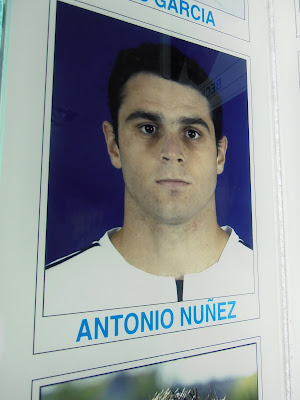 |
| Gresty Road - home of Crewe Alexandra - on a particularly 'busy' night. Picture from Soccerway. |
At the start of the season the BBC revealed the findings of their
Price Of Football survey. There was nothing particularly surprising in it. The Premier League table, for example, showed that at some of the London clubs in particular (Chelsea, Arsenal, Fulham, Tottenham), vast fees (£100-£80 in some cases) were exchanged for tickets to watch ninety-minutes of entertainment and have the privilege of paying £4 for a pie (Arsenal) in the 15-minute half time break.
My local league team -
Crewe Alexandra, League 2 - were neither the
worst offenders nor the best practitioners in their division. At £19.50 for most games they're hardly bargain basement but considering Gillingham fans have to stump up £26 to watch their team its not quite the rip-off it could be.
Whether North or South, the unifying factor that most league clubs (outside of the Premiership) have is that they struggle to fill their stadiums. Crewe, for example, will get an average attendance of something like 3,000 fans into their 10,000-seater stadium during the course of the season. It's not hard to see why.
I'm off to Crewe twice this week. Tonight, the mighty Alex take on Macclesfield in the Johnstone's Paint Trophy (JPT) Second Round, whilst at the weekend its Southend in the league. The JPT is generally used by league clubs to encourage new fans and provide bargain cup football for loyal supporters who go to the league games every week. Tonight I'll pay £8 for my ticket. If I had a child (under-11), their admission would be included free. The club bar pre-match is fairly cheap and family-friendly; assuming I wanted a couple of pints and my metaphorical child wanted a couple of J20s it'd be around £4 per round. A pie at half time is £2.90 and a drink is about £1.50. Total cost of the evening for parent and non-existent (in this case) child: £24.80. Not bad.
 |
| Kids cinema tickets can cost as little as £1 |
Until you compare it to the other attractions available. Crewe's local cinema (
Reel Crewe) doesn't have anything 11-year old friendly this Wednesday, but from Friday it's showing
The Lion King 3D. Adult ticket for next Wednesday night: £5.80. Kid's ticket for a Wednesday night: £5.80. There's no pricing for food and drink on Reel's website but I know they do 'meal deal' style popcorn and drink combos for about £6. Two of them plus the ticket prices: £23.60.
The prices then are comparable and if you assume that actually I wouldn't have the couple of alcoholic drinks budgeted in the first example then the football becomes very attractive.
But wait, this is a cup game, priced low to attract new fans, isn't it? So lets say Crewe play fantastic, my metaphorical kid loves it, 'can we go back next Saturday please, Dad?'
Cost of an adult league ticket to the Southend game: £19.50. Children's (under-11) regular ticket: £5. Pies and drinks at the same price as the other night: £16.80. Cost of Saturday at the football: £41.30. Not far off double.
I'd compare that to the price of the cinema on a Saturday but there's no point. Prices may generally be higher at the weekend (or actually, when you consider the kid's club at £1 a ticket, sometimes lower) but never in a million years will two tickets, two drinks and two popcorns set you back over forty-quid. The cinema reduces its prices on a Wednesday because no-one used to go to the cinema on a Wednesday and they don't need to encourage loyalty to their medium of entertainment. Their Wednesday prices stay that price for the entire year. The football reduces prices to get fans in to unattractive games (maybe one or two a year, before Crewe go out of the cup) but provide no incentive to carry on attending the games after that.
When faced with the option of a football game or a cinema visit (or swimming pool trip, or kick about in the local park and a burger afterwards), the cost-conscious parent only has one option. Crewe's stadium, and many others like it, will stay over half-empty for most of the year. There are many reasons for this but not least of them is the fact that football fails to accept that it needs to compete on price with other leisure activities vying for punter's attention on a consistent basis. The odd inexpensive cup game, as a token gesture to parents who have bigger worries, isn't going to change season-average attendances, or magically create thousands of hungry fans, desperate to spend twice the amount of money they could elsewhere.
































